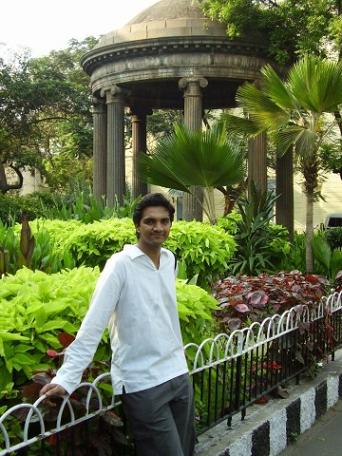What’s the first thing that comes to your mind when you think of Sri Lanka? For me it is ‘Sanath Jayasuriya’, ‘The accented Tamil’ and unfortunately the rest of it doesn’t lead up to very good memories. But did any of you think ‘English Theatre’?
This August, we had the Hindu Metroplus theatre festival in Chennai, which saw not just theatre groups from all over India, but 4 International acts too, and a couple of them professional theatre groups. One of them was the Colombo based ‘Stages Theatre group’ (http://stagestheatregroup.wordpress.com/). I wasn’t exactly enthusiastic about this one, since I hadn’t heard of them earlier. But being a Sunday and with nothing better to do, I decided to go for it. Surprisingly the hall was half empty and as a consequence, I got a seat upgrade.
The play was called ‘Checkpoint: Three strangely normal plays’. Hardly anything about it was normal though – either in the presentation or in what they had to convey. And the first two plays were real events, btw.
Play 1: ‘The bus ride’ (or something to that effect)
This was a one-man show, literally. One guy doing all roles.
The story starts with a drunk (referred to as ‘x’) on a bus, who keeps talking incessantly. The other passengers are visibly upset by his behavior. The bus happens to break down in the middle of nowhere and its close to 10 in the night. The drunk then offers to buy all the passengers a drink, which they willingly accept. Then when he is asked about the reason for the celebration, he starts his story. In a strife-ridden Sri Lanka, emergency has been declared, and politicians have complete control. X’s son has been missing for days and he then realizes that the local politician has kept him in custody. The politician proposes a deal that he would return the son in exchange for X’s wife. Without money and an option, ‘X’ agrees to the deal, and starts drinking to forget. His drinking becomes a habit and he keeps borrowing money from the politician, and the cycle continues. On this day, ‘X’ decides this would be the last time that he would borrow money and decides to throw it all away due to his guilt. I’m not sure of the exact ending. But it was a heart-wrenching story about life in Sri Lanka during the emergency. And the fact that one man did it all was amazing.
Play 2: 24 Hours
The premise of this play was simple. To track the news coming out from different media sources over a period of 24 hours. The sets and the screenplay (except for the first sequence) were done very imaginatively. No actual dialogues were spoken, the characters wearing masks just moved around according to the sequence, while the news was being read in the background. It was sad to see the state of affairs the country was in. From news about an attempted assassination, to news about the attack on a girls school by govt forces, since they were suspected to be LTTE rebels. The best part was a confrontation between the ethnic rebels and the govt body, where they keep throwing numbers. The play was a visual treat in terms of the screenplay, lighting and the imaginative direction.
Play 3: Forum Theatre
This was perhaps the simplest of plays, in terms of screenplay and sets, but probably the most different. The director tells upfront that the play would take up a situation and then stop at a particular point. And then the audience is asked what they would want to see happen. And so, starts the story of a husband and wife, who have a misunderstanding over an immigrant. The play stops there and the audience is asked on what they would like to see at that point of time. The best suggestions are then enacted impromptu. This is then repeated a couple of times. In fact after one of the breaks they invited a member from the audience to be part of the next scene. An ending wasn’t intended, and the aim was to talk about an important issue in an innovative manner.
All in all it was a very interesting play. And especially after an overdose of Neil Simon from the ‘Evam’ (a popular Chennai based theatre group) stable, this was a refreshing change.
Subscribe to:
Post Comments (Atom)

No comments:
Post a Comment